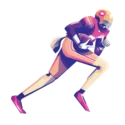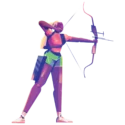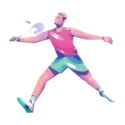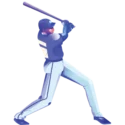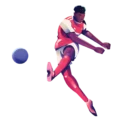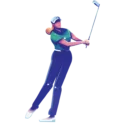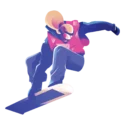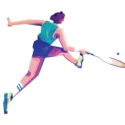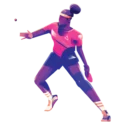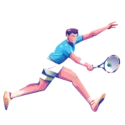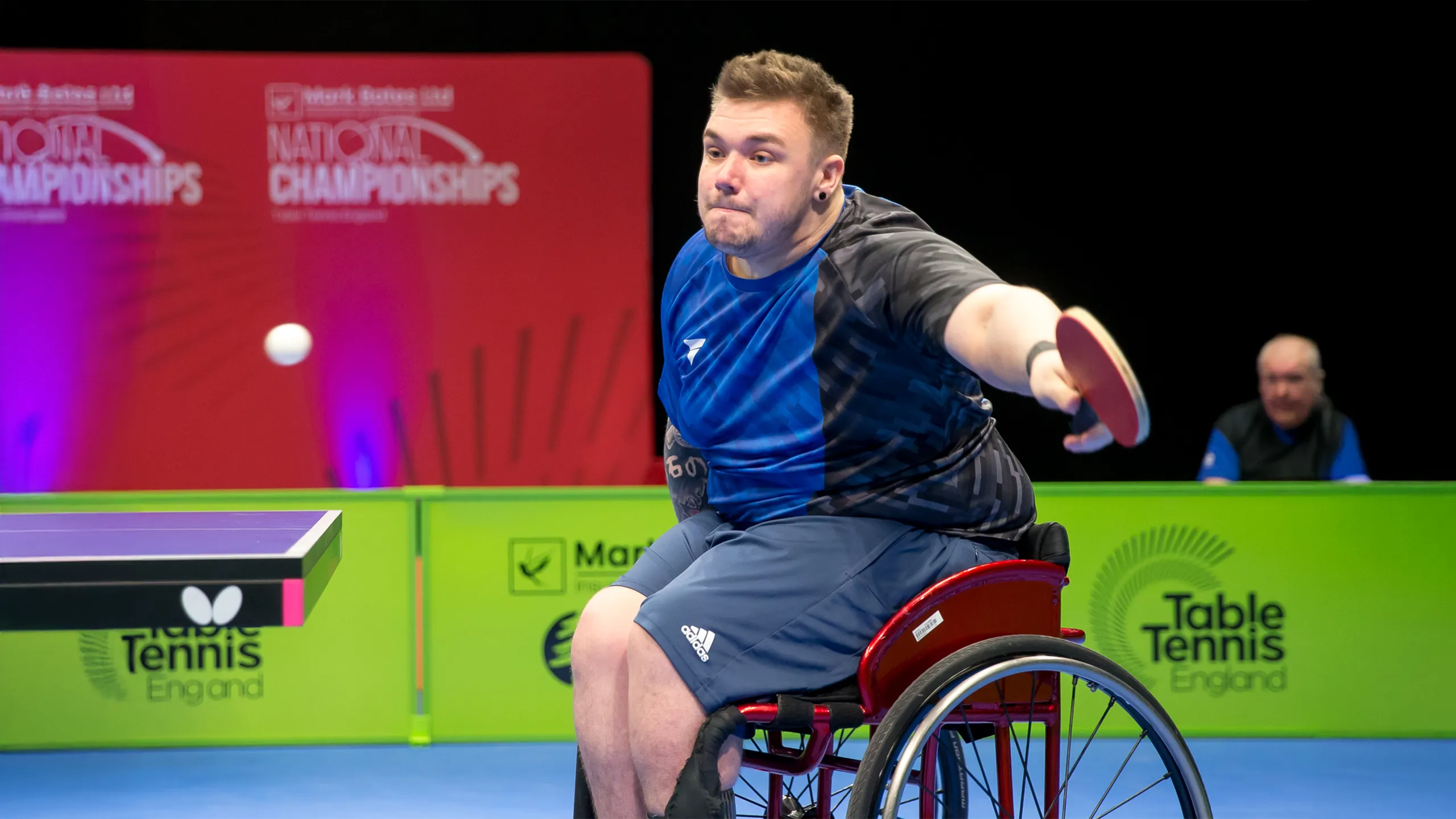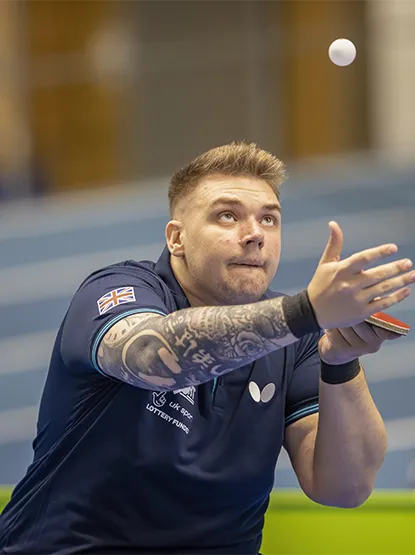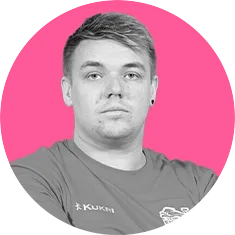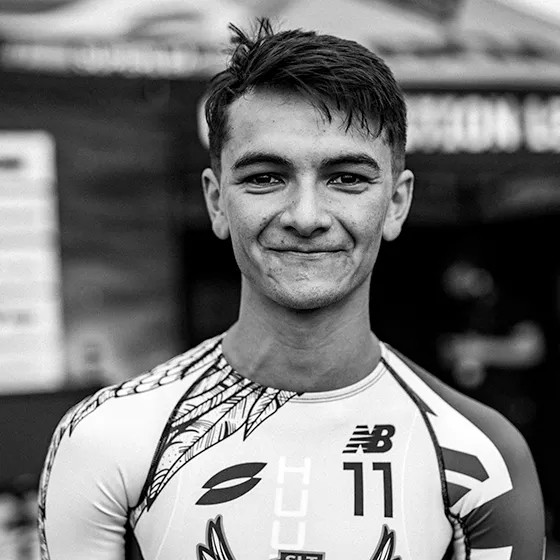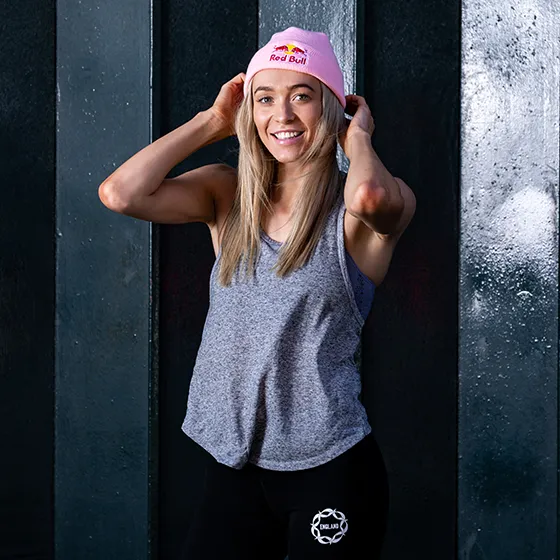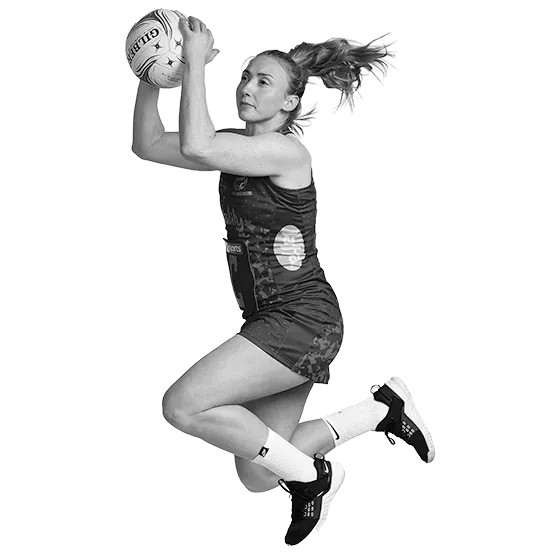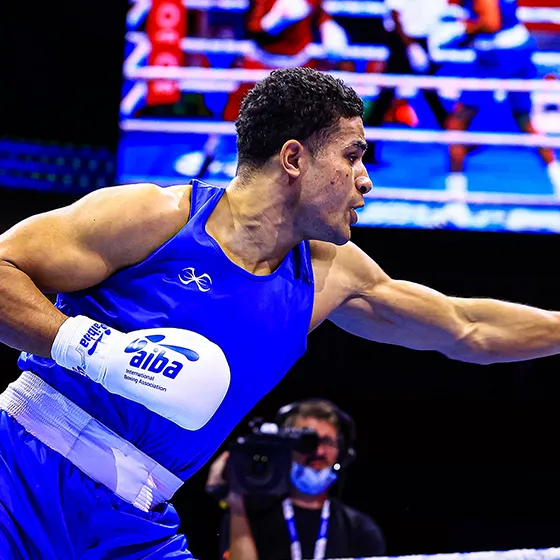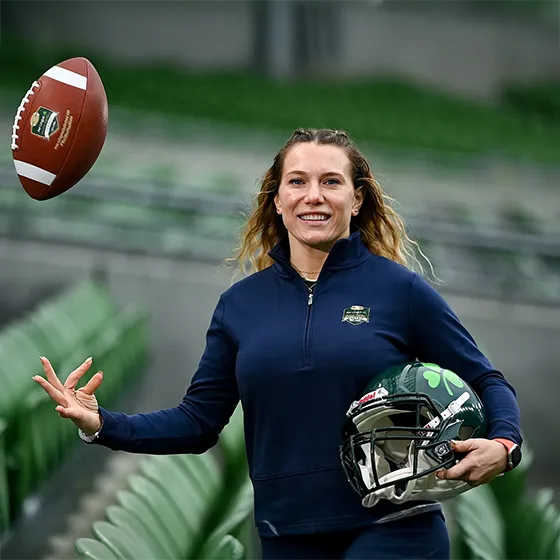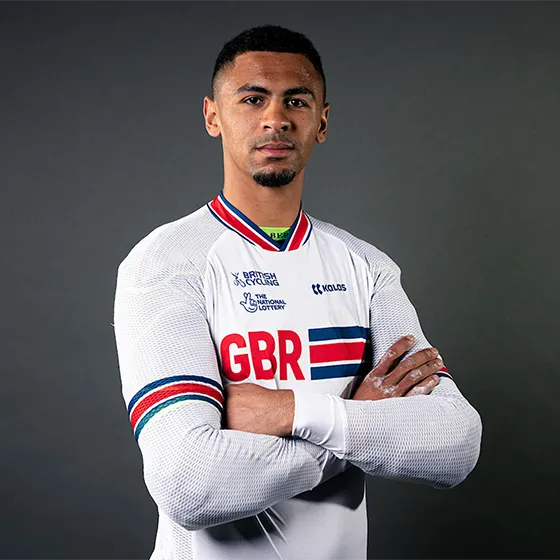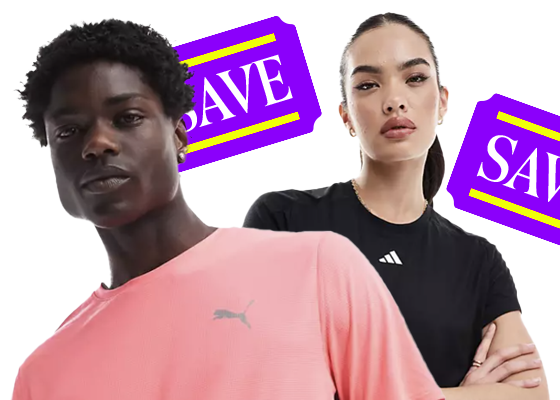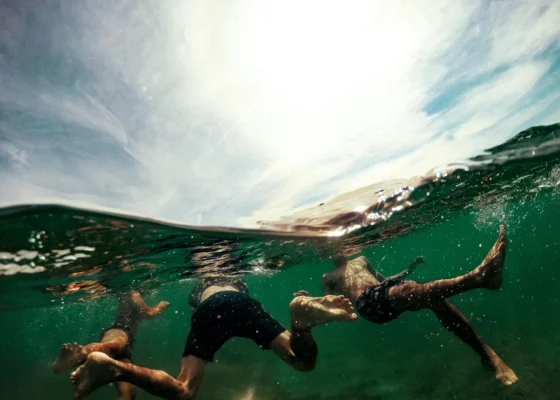EARLY YEARS
Can you share with us your earliest memory of being introduced to your sport?
I was first introduced to the sport at the age of 10 when I went to Halton Table Tennis Club in Widnes. I was obsessed and just wanted to play all the time.
Any inspirational people, coaches or mentors who played a key role?
Loads. My mum did everything she could to make my sporting dreams a reality. My older brother Chris used to cook me tea and take me to training, Karen Tonge who runs Halton gave me the opportunity to play and reach my potential, and a guy called Joe Tighe from the club used to drive me to competitions and help me raise money for wheelchairs. And all the coaches and players at British Para Table Tennis have helped me to get to where I am.
Did you face any major obstacles? How did you overcome them?
Growing up, there wasn’t much money coming in, but the club helped me out loads by allowing me to train and then helping me get grants.
I’ve also had to overcome mental health challenges and my girlfriend Lucy has been amazingly supportive and so have all the coaches at British Para Table Tennis. Thanks to a lot of love and support I’m in a much happier place and without that I wouldn’t have gone on to achieve the success I have.
Do you think that getting involved in sport changed you as a person?
Definitely, it helped give me confidence and belief, and I’ve got to travel to places and have success I never dreamed I could.
GRASSROOTS
What would you say to someone thinking about trying your sport?
Just do it – it’s a great sport to pick up the basics and it is so easy to integrate into able bodied table tennis and you can’t do that in a lot of other sports.
HEROES
Which sportspeople do you admire now, and why?
I still admire my first hero, Steven Gerrard. As a child I wanted to be like him but being born with cerebral palsy, meant my sporting pathway led to the Paralympics.
TRAINING
What’s the toughest thing about being an athlete?
I would say being away from friends and family for a long time at tournaments and competing and stuff. It’s a privilege to be an athlete for a living. There’s no better job for me, but yeah, that’s probably one of the toughest things.
What’s the hardest part/skill in your sport to master?
I would say touch play or wheelchair movement as well – in high-speed rallies to keep control of your chair’s quite hard to do.
MOTIVATION
What’s your training mantra?
My training mantra is to always show up, no matter what and give it 100%.
How do you keep going mentally when things get tough?
When things are tough mentally I try and draw on experiences I’ve had on and off the table, especially with my friends and family who’ve been so supportive. So when I’m feeling down or stressed about tables and stuff and lean on friends and family to give me their support as well.
What’s been your greatest sporting moment so far?
My greatest sporting moment will be either winning Paralympic bronze medal in Tokyo or win the Commonwealth Games at home games in Birmingham. Incredible experience.
How do you deal with defeats/set-backs?
I deal with defeats and setbacks by trying to learn from the mistakes and moving forward and seeing how I can improve in my next match.
What do you do to freshen-up your training routine?
I freshen up my training routine by travelling to Nottingham to train with the able bodied England team and Nottingham Uni players to keep my game sharp and then integrate with able-bodied players plays as well and use both sides of the game for improving.
NUTRITION
What performance foods do you enjoy most and why?
Performance Foods I enjoy is Protein. Something like chicken. A bit of pasta. So like, like a nice little pasta bake or a tuna pasta bake would be good for me.
What are you go-to feel-good treats?
I do love a bit of chocolate, so chocolates probably go to. I do like a Battenberg cake as well.
Have you got a favourite recipe you can share?
Get your missus to cook all your meals. That’s my recipe. Not sure she agrees!
Do you have any favourite recovery routines? Warm downs? Ice baths? Recovery shakes?
Not so much ice baths, but I do stretch after I’ve played to keep my body in good condition for training full time. And yeah, just keep it on top of my cerebral palsy, keep my legs pain free as much as I can and yeah, physio.
TOP TIPS
Any go-to fitness tips you can recommend? Perhaps a 3 or 4 step move you recommend
I would recommend to keep yourself as mobile as possible, especially with table tennis to keep your reactions sharp so a lot of explosive movements in the gym and a lot of stuff to keep you active as well as lifting weights as well.
What’s the hardest skill in your sport to perfect?
Advice on preparing mentally to get involved
FUN STUFF
Can you share three quirky facts not many people know about you?
I do stand up comedy as well as table tennis, so I travel around the country doing comedy gigs.
I like to play the PlayStation with some of the boys in the Para squad as well, so we like to play like Fifa and stuff like that and.
And I am a big Liverpool fan so I support Liverpool and try and go to match as much as I can at Anfield.
How do you unwind away from sport?
I unwind by just spending time with loved ones, really. And trying to switch off from sport and spending time with people that I love really and thinking why we do sport as well.
What’s the strangest thing that’s happened during competition?
My wheel fell off once when I was a kid. It wasn’t secured properly and I pulled it off whilst I was playing, so I fell out.
